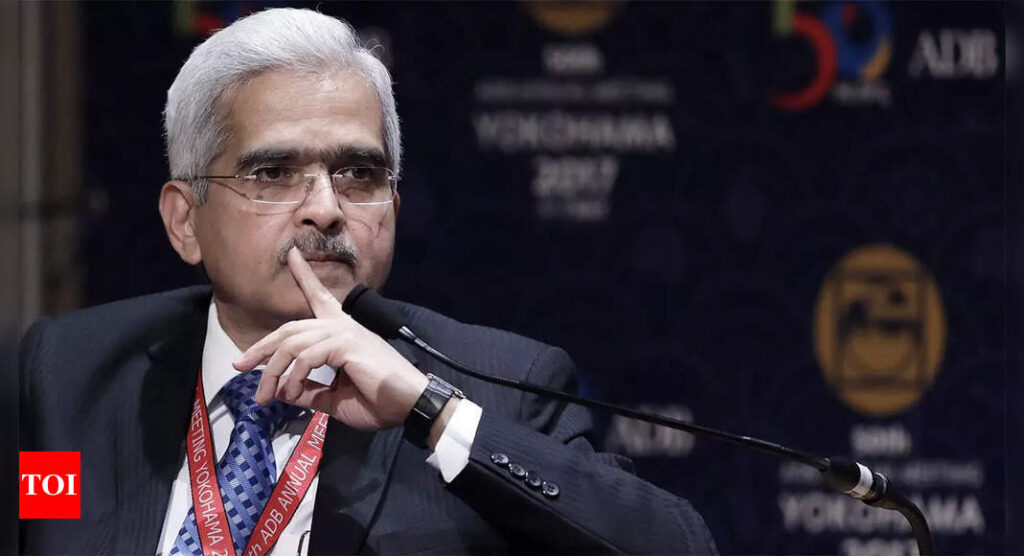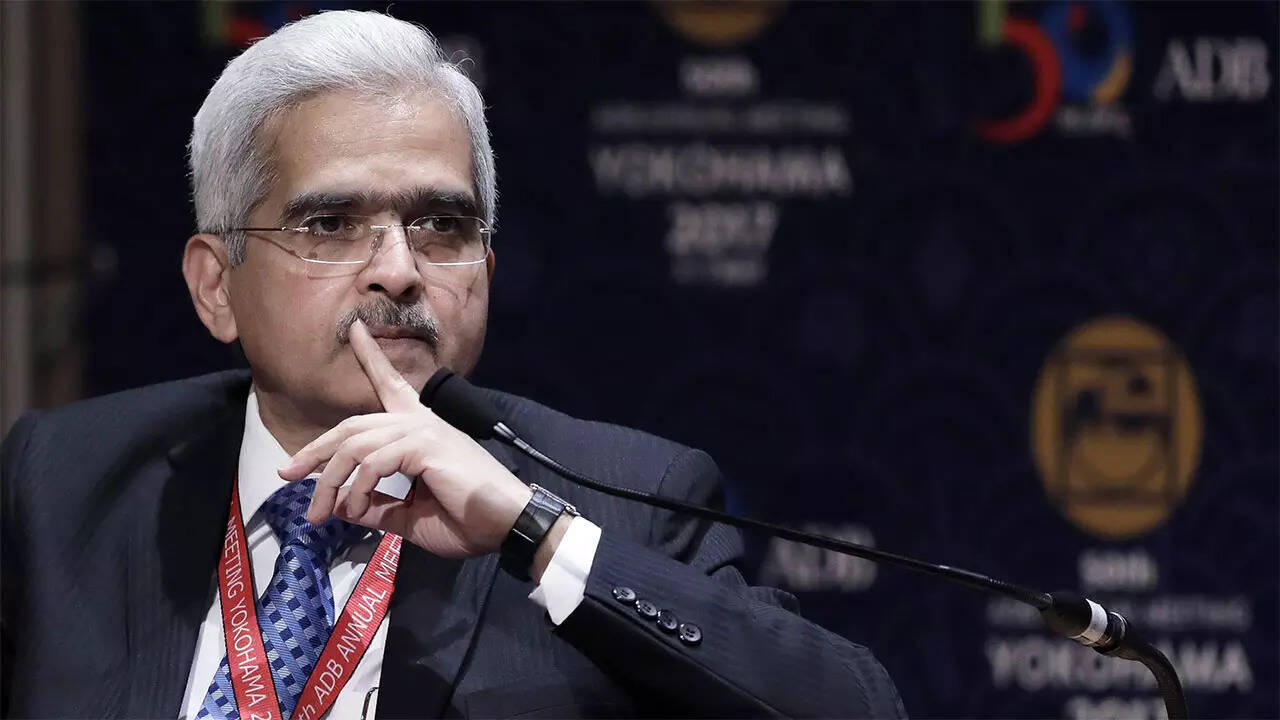[ad_1]
MARRAKECH: RBI governor Shaktikanta Das on Thursday firmly backed the policy of the central bank to intervene in the markets to check extreme volatility and called upon global agencies, such as the IMF and some of the advanced countries, to refrain from tagging countries as “currency manipulators” or putting them on a watchlist.
At an IMF event, Das said India has managed to build strong foreign exchange reserves, $587 billion on last count, as a buffer against excessive outflow of capital and to check against any spillover effects of steps taken by advanced economies, such as withdrawal of stimulus or tightening of rates.
“When there are spillovers of actions, developing countries feel the maximum impact. India, with a huge population, has to be self-reliant and self-dependent, and we need to have strong reserves. That has given great confidence to markets that whatever be the challenge, India will be able to meet its external obligations. It helped us even after the Ukraine war as the Indian rupee did not depreciate as much because the market had confidence… Even during this period, India was intervening in the market. Our intervention is both ways, depending on market movement. Our objective is not to have a particular level (or exchange rate),” the governor said.
He then called for a review of tags attached by agencies and certain countries, although he did not name any. The US puts countries on the watchlist, something that India had to deal with in the past, with China in that category for long. “We have to get out of this one-sided approach to call someone a manipulator, or a stabilised currency or put on the watchlist. It’s a message to the IMF, so please review it,” he said during a conversation with IMF director Krishna Srinivasan. The IMF has advocated that there should be minimal intervention in the market.
The governor also hit out at critics who often question the Indian central bank’s autonomy, and listed out how the government and RBI have worked together to tackle the Covid crisis and inflation, which he said had spiked due to the Ukraine war.
“Central banks must have autonomy. Autonomy means autonomy in decision-making. It does not mean you stop having a conversation,” the governor said.
At an IMF event, Das said India has managed to build strong foreign exchange reserves, $587 billion on last count, as a buffer against excessive outflow of capital and to check against any spillover effects of steps taken by advanced economies, such as withdrawal of stimulus or tightening of rates.
“When there are spillovers of actions, developing countries feel the maximum impact. India, with a huge population, has to be self-reliant and self-dependent, and we need to have strong reserves. That has given great confidence to markets that whatever be the challenge, India will be able to meet its external obligations. It helped us even after the Ukraine war as the Indian rupee did not depreciate as much because the market had confidence… Even during this period, India was intervening in the market. Our intervention is both ways, depending on market movement. Our objective is not to have a particular level (or exchange rate),” the governor said.
He then called for a review of tags attached by agencies and certain countries, although he did not name any. The US puts countries on the watchlist, something that India had to deal with in the past, with China in that category for long. “We have to get out of this one-sided approach to call someone a manipulator, or a stabilised currency or put on the watchlist. It’s a message to the IMF, so please review it,” he said during a conversation with IMF director Krishna Srinivasan. The IMF has advocated that there should be minimal intervention in the market.
The governor also hit out at critics who often question the Indian central bank’s autonomy, and listed out how the government and RBI have worked together to tackle the Covid crisis and inflation, which he said had spiked due to the Ukraine war.
“Central banks must have autonomy. Autonomy means autonomy in decision-making. It does not mean you stop having a conversation,” the governor said.
[ad_2]
Source link











More Stories
India’S Growth Forecast: S&P ups India’s FY’24 growth forecast to 6.4% on robust domestic momentum
India to remain fastest-growing major economy, but demand uneven: Poll
Jack Ma: Jack Ma gets back into business with ‘Ma’s Kitchen Food’